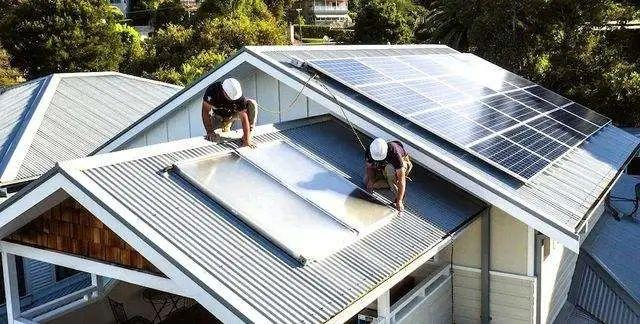PHOTOVOLTAIC CABLES ECONOMICALLY
In the photovoltaic system, the temperature of the AC cable is also different due to the different environments in which the lines are installed. The distance between the inverter and the grid connection point is different, resulting in different voltage drop on the cable. Both temperature and voltage drop will affect the loss of the system. Therefore, it is necessary to reasonably design the wire diameter of the output current of the inverter, and comprehensively consider various factors, so as to reduce the initial investment of the photovoltaic power station and reduce the line loss of the system.
When designing and selecting cables, technical parameters such as rated current carrying capacity, voltage, and temperature of the cable are mainly considered. During installation, the outer diameter, bending radius, fire prevention, etc. of the cable are also considered. When calculating the cost, consider the price of the cable.
1. The output current of the inverter should be consistent with the current carrying capacity of the cable
The output current of the inverter is determined by the power. The single-phase inverter current=power/230, the three-phase inverter current=power/(400*1.732), and some inverters can also be overloaded by 1.1 times.
The current carrying capacity of the cable is determined by the material, wire diameter and temperature. There are two types of cables: copper wire and aluminum wire, each of which is useful. From the perspective of safety, it is recommended to use copper wire for the output AC cable of the inverter, and BVR soft wire is generally selected for single-phase. Wire, PVC insulation, copper core (soft) cloth wire voltage class is 300/500V, three-phase choose 450/750 voltage (or 0.6kV/1kV) class YJV, YJLV irradiated XLPE insulated PVC Sheathed power cable, the relationship between the cutoff of the conductor and the temperature, if the ambient temperature is higher than 35°C, the allowable current should be reduced by about 10% for every 5°C increase in temperature; if the ambient temperature is lower than 35°C, the temperature When the temperature drops by 5°C, the allowable current can be increased by about 10%. Generally, if the cable is installed in an indoor ventilated place.
2. Cabel economical design
In some places, the inverter is far away from the grid connection point. Although the cable can meet the requirements of the current carrying capacity, the line loss is relatively large due to the long cable. The larger the warp, the less the internal resistance. But also consider the price of the cable, the outer diameter of the inverter AC output sealed terminals.

PHOTOVOLTAIC CABLES ECONOMICALLY
PHOTOVOLTAIC CABLES ECONOMICALLY
PHOTOVOLTAIC CABLES ECONOMICALLY


Comments are closed